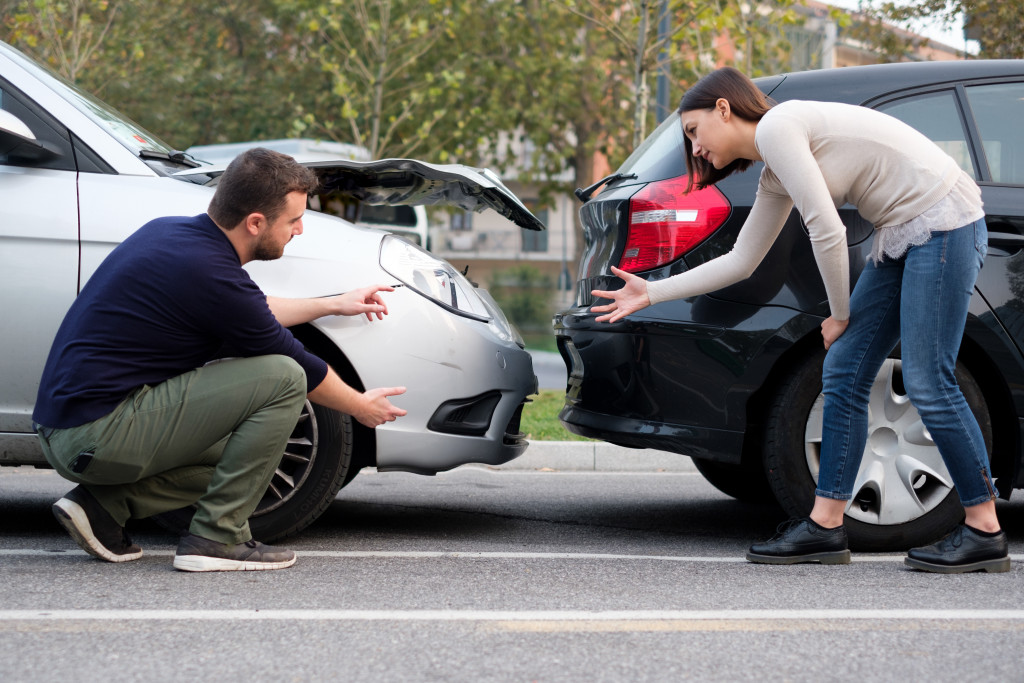Company cars are a nice perk to have. This is why most employees will want to work for a company that provides one. Why is it beneficial? For one, you don’t have to pay for gas because the company will shoulder it. Second, you are not responsible for the wear and tear of the car. And third, if you get in an accident using the car, you won’t have to pay for the repair and replacement of the car parts. Or is it?
Many accidents can occur while you’re using the company car. Using the official employee car does not exempt you and others from making the wrong decisions on the road. You can be at fault and others can be at fault, too. But as is with car accidents, both parties will have to face the consequences of the actions of each other.
Step 1: Who Is to Blame?
The first thing that you have to do when you get into a road accident is to call a car accident lawyer. The attorney will guide you on how to answer police inquiries regarding the accident. They will also give you pointers on how to deal with the other party and the third party in the accident if there is any. Determining who is to blame is an important step in the process because the insurance company will require proper documentation of this accident. Whether they will approve the claim depends on who the police said is responsible for the accident.
For example, if you are texting and driving, you can become responsible for the accident. The company’s insurance will not shoulder the cost of the litigation and the repair of the company car and the other party’s vehicle. But if the investigation found out that the company did not maintain the car properly, then the commercial auto insurance will need to cover the costs of the repair of both cars.
Step 2: Who Will Pay?

The biggest question after a car crash, of course, is: who will pay for the repair of the cars? Normally, if the driver is at fault, the insurance company will shoulder for the repairs of both vehicles. But since you are using a company car, there is an additional determination that needs to be done. Were you using the car on official errands and duty? If you are using the car to go to a meeting when the crash happened, then the company will assume responsibility for the accident.
But if the accident happens because you are on your way to watch your daughter’s ballet recital, then you must shoulder the expenses. That is a personal errand. As an employee, you would also have to face an internal investigation into the cause of the accident. Depending on if it is allowed by the company for you to use the car for personal errands, you might face sanctions aside from the financial responsibility.
Step 3: What Are the State and Local Laws?
Laws vary per state when it comes to car crashes. It depends on where the accident happened. Does the insurance company cover accidents in that particular state? What law applies to your specific situation? Aside from the type of coverage your company has, it’s also important to determine how state and local laws will impact the negotiation process.
This means that if you are going to cross state lines, it is better to switch to your personal car or to a rental car. Using the company car in states where its insurance company has limited coverage will complicate the investigation more. If you insist on using the car on your personal errands, you must be ready to face the consequences of your actions. Dealing with state and local laws has always been complicated and a lot of hassle.
The best way to avoid dealing with car accidents is to drive aggressively. You must develop better driving habits and know the dos and don’ts of driving by heart. Whether you’re bringing your personal or company car, good driving habits will avoid troubles and complications.
A company car is a nice perk to have, but it comes with a lot of responsibilities. Treat the car as you would your own car. Take care of it as if you are paying for it. When you drive on the road using it, make sure you practice good driving habits, so you and the company don’t get into trouble. The company trusted you enough to give you the keys to that car, so you should prove you are worthy of that trust.

